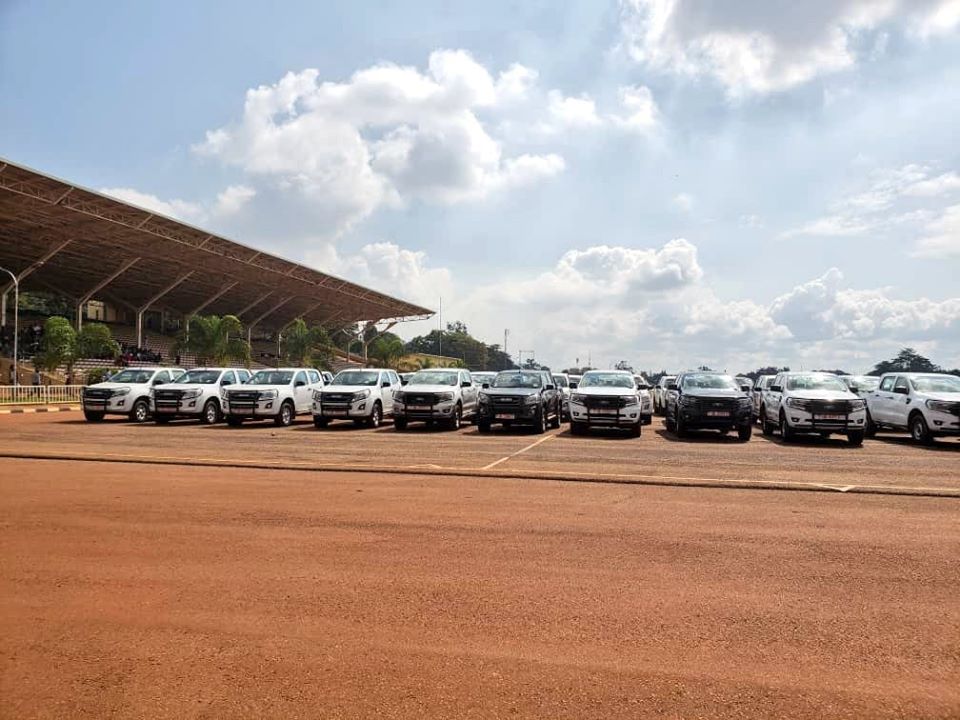
The Minister of the Presidency, Hon Esther Mbayo has today handed over a fleet of over 60 pickup trucks to Resident District Commissioners (RDCs) to enable them to carry out their duties of work efficiently.
The occasion took place at Kololo ceremonial grounds.
This comes a few months ahead of the looming general elections anticipated to take place early 2021.
Besides this being a initiative for the appointed political heads, several people especially those from the opposition have critiqued the move saying that its aimed at frustrating the powers and freedoms of the nationals.
It should be noted that early this year, close to two hundred and 10 Resident District Commissioners (RDCs) and their deputies who were appointed in mid 2018 completed their induction at the National Leadership Institute (NALI), Kyankwanzi into government service with expectations that their individual and collective performance will be better, much more visible and consistent with the laws. In addition, the ministry for the presidency has embarked on regional joint engagements with district leaders to deepen their appreciation of the key priorities of government.
Duties of an RDC
Under the Constitution, RDCs and their deputies are senior civil servants directly appointed and deployed to respective districts by the president. They represent the president and Central Government respectively, and as such are expected to exhibit a high level of personal and official dignity, and knowledge on government policies and ongoing programs.

Apart from representing the president, their day-to-day duties include monitoring and supervising the implementation of public services in their areas of jurisdiction. RDCs chair the district security committee comprising the police, intelligence services, army, prisons, Chief Administrative Officer, Resident State Attorney, and the district chairperson among others.
They also coordinate the administration of government services in the district, advise the district chairperson on matters of a national nature that may affect the district or its programmes, and particularly the relations between the district and the central government.
They monitor and inspect the activities of local governments and where necessary advise the chairperson. And they may from time to time be assigned other functions by the President or ministries. Furthermore, RDCs conduct sensitization to the population on governmental policies and programmes, and in so doing shall liaise with the district chairperson, council and the civil service.
In particular they are mandated to advise the chairperson to instruct the chief internal auditor to carry out a special audit and submit a report to the council, draw the attention of the Auditor General to the need for special investigation audits of the local government council.
RDCs are also mandated to draw the attention of the Inspector General of Government to a need to investigate any cases of corruption, mismanagement or abuse of office, and inform relevant line ministry or department to the divergence from or noncompliance with Government policy by any council within their area of jurisdiction.
In consultation with the speaker or chairperson of a council, RDCs are required to address district and sub-county councils from time to time on any matter of national importance. Over the years RDC have taken on meditating in disputes among citizens especially the vulnerable that may not afford or even know the legal system and procedures.
